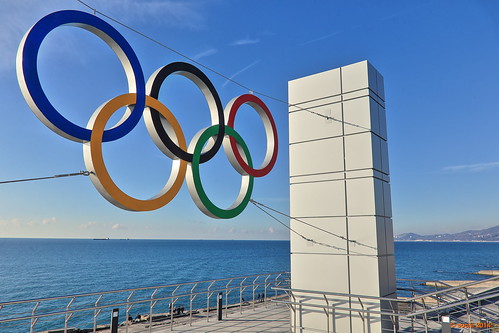Sochi’s $51,000,000,000 infrastucture legacy
It takes nine years from the time of bidding to the staging of an Olympics event. The host country gets seven years to prepare for a two-week extravaganza. The Winter Olympics is on a smaller scale than the Summer Olympics, with fewer events, athletes, and venues. Still, Sochi has made history as the most expensive Olympics ever.
Why costs were so high
Over 85% of Sochi’s infrastructure had to be built from scratch, according to Jean-Claude Killy, the chair of the International Olympic Association’s coordination commission.
Drastic infrastructural improvements
Sochi didn’t even have potable water before the games. Now it has over 400 public buildings, new roads, and newly constructed residential buildings. A new road has taken pressure off the main coastal road, and now it takes only half an hour to reach the stadiums from downtown Sochi, instead of the former two and a half-hour travel time.
“Before, we were tormented by traffic…. When snow fell in the mountains, the electricity would turn off for five days,” says a business owner in Sochi, Andrei Tanichev.
Although Russia is not usually equipped for people with disabilities, Sochi is now. The city now has wheelchair ramps, tactile paving for the visually impaired, and audio signals at major crosswalks- all of which paint a different picture of Russia.
Also unlike other Russian cities, Sochi now boasts of a modern airport. Public transportation here is not the nightmare that it is in the rest of the country. New city buses make commuting easy. The largest train station in Russia is now here, and the glass-fronted train station connects the Caucasus mountains with arenas and the Olympic village along the Black Sea. Its construction was so tough that the company behind it won an international award for the project.

Sochi’s new train station features the Olympic rings. Image by Sochi 2014 Winter Games
Making use of new infrastructure will be tough
Eleven venues and forty nine hotels were built for the Olympics, and they may not be used much now. “Building the facilities for these events creates a tremendous amount of excess capacity, particularly when it comes to hotel rooms. So what happens is that [hotel] owners get into bidding wars, and that drives prices down,” says a University of Michigan sports professor, Stefan Szymanski.
Pollution and displacement of families – many of whom have not been compensated fairly – are other fallouts. Another issue is maintenance. The infrastructure “will cost 80 billion rubles per year ($2.26 billion) to maintain,” says an environmental activist, Vladimir Kimayev.
It’s unlikely that Sochi will catch on as a winter sports destination. Other proposals include making it a gaming zone or a children’s athletic camp. Ultimately, taxpayers will pay for this white elephant for years to come. Although the Olympics have traditionally helped rebrand countries, the prospect of that happening for Sochi is “limited,” remarks Mauro Guillen, a professor at Wharton. His reasons for saying that include “too much spending and too little effect. It will continue to be a summer resort town for Russians.”
Category: Infrastructure















